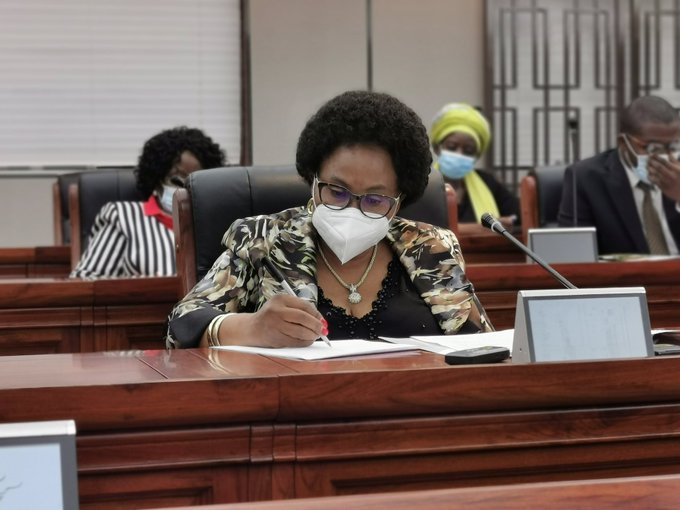The government has announced that mining on areas held by National Parks is banned with immediate effect as steps are being undertaken to immediately cancel all mining title held in National Parks.
This comes as a relief amidst reports that two mining companies namely Zhongxin Coal Mining Group and Afrochine Smelting allegedly received permission from the government to begin environmental impact assessments for drilling, land clearance, road works, and geological surveys at two proposed sites in Hwange National Park, which is home to almost 10% of Africa’s remaining wild elephants.
If this would lead to a new mine, conservationists warn that it will shrink and disturb the habitat of many rare species including black rhino, pangolin, and wild dogs, and devastate safari tourism, which is a vital source of income for people especially living nearby.
Hwange is home to the largest diversity of mammals among the world’s national parks.
“This is one of the greatest game parks in the world and it would be unfortunate if mining was allowed since the mines would be in one of the most pristine areas of the park. The last black rhino population in Hwange Park lives there, so do 10,000 elephants and 3,000 buffalo,” said Trevor Lane, who has worked for the Bhejane Trust in Hwange for more than a decade.
“If it had gone ahead it would be an end to the park. It would kill the tourist industry which is worth hundreds of millions of dollars.”
He was happy that the project was shelved and averted protests if it had moved forward. “I was cautious at the early stage. It’s good that the government banned mining in national parks. Many people were ready to take action if mining had gone ahead. There would be a huge campaign against it,” said Lane.
The proposed coal exploration would involve geochemical and geophysical prospecting and construction of mobile camps along the road to Sinamatella Camp in Deka Safari Area, according to documents seen by this publication.
Susti Global, the consultancy that is conducting the environmental impact assessment, said the ministry of mines had approved an initial prospectus for exploring inside the perimeter of the park, which is normally forbidden.
In an exclusive interview with this publication Susti Global Chief Environmental Consultant Oliver Mutasa said, “We passed the prospectus stage and we are now conducting an environmental impact assessment and receiving comments from various stakeholders. After that, we will wait for permission from the ministry before drilling.” said Mutasa.
Recently some local media publications reported that the mining concessions had been personally granted by President Emmerson Mnangagwa, who has previously expressed strong support for coal. This year, he visited the region and launched the construction site of a thermal power plant in Hwange, which was scheduled to open in October.
Safari Operators in the area who spoke with this publication on the condition anonymity said surveyors had begun taking samples, which should not be allowed before the environmental assessment.
A month ago, the rhino monitoring team of the Bhejane Trust said it came across a Chinese team drilling for coal without prior consultation with the area manager.
There are several open-cast mines outside the park, and a similar method of extraction could be used inside the perimeter where coal deposits are said to be close to the surface.
Mutasa said such speculation was premature: “The proposals are only for exploration. “The boreholes will tell us where the mineral is and determine what kind of mine and what quantities.”
Safari operators and conservation groups warn that any type of mine would harm the environment.
Speaking through a telephone interview, Stephen Long of Bhejane Trust, which works with Zimbabwe’s National Parks and Wildlife Management Authority in the conservation of the Hwange area, said mines would bring noise and pollution.
“There is already a lot of Chinese investment in coal in Hwange area outside the park, much of it grossly polluting. Air quality in parts of Hwange must be as bad as most big cities, probably worse, and it is hard not to feel that the Chinese have already polluted their own country and are now exporting their pollution to poor countries such as ours. Zimbabweans are unlikely to see much benefit from the mines,” said Long.
“When the rest of the world is getting out of coal and recognising the climate emergency, why is Zimbabwe expanding its use of the stuff and planning, according to the president, to use it for decades ahead?”, said Long.
Residents of Lukosi village in Hwange reportedly filed a court application this year complaining of air and water pollution by other mining companies along Nekabandama Road and upstream of the Deka River.
Last week Minister of Environment, Climate, Tourism and Hospitality Industry, Mangaliso Ndlovu when he announced the reopening of the country’s tourism sector after five months of closure, when he was asked for the developments he refused to comment saying, that he is still engaging with his counterpart Mines Minister, Winston Chitando regarding the developments and he promised reporters that he is going to issue a comprehensive statement later this week.






